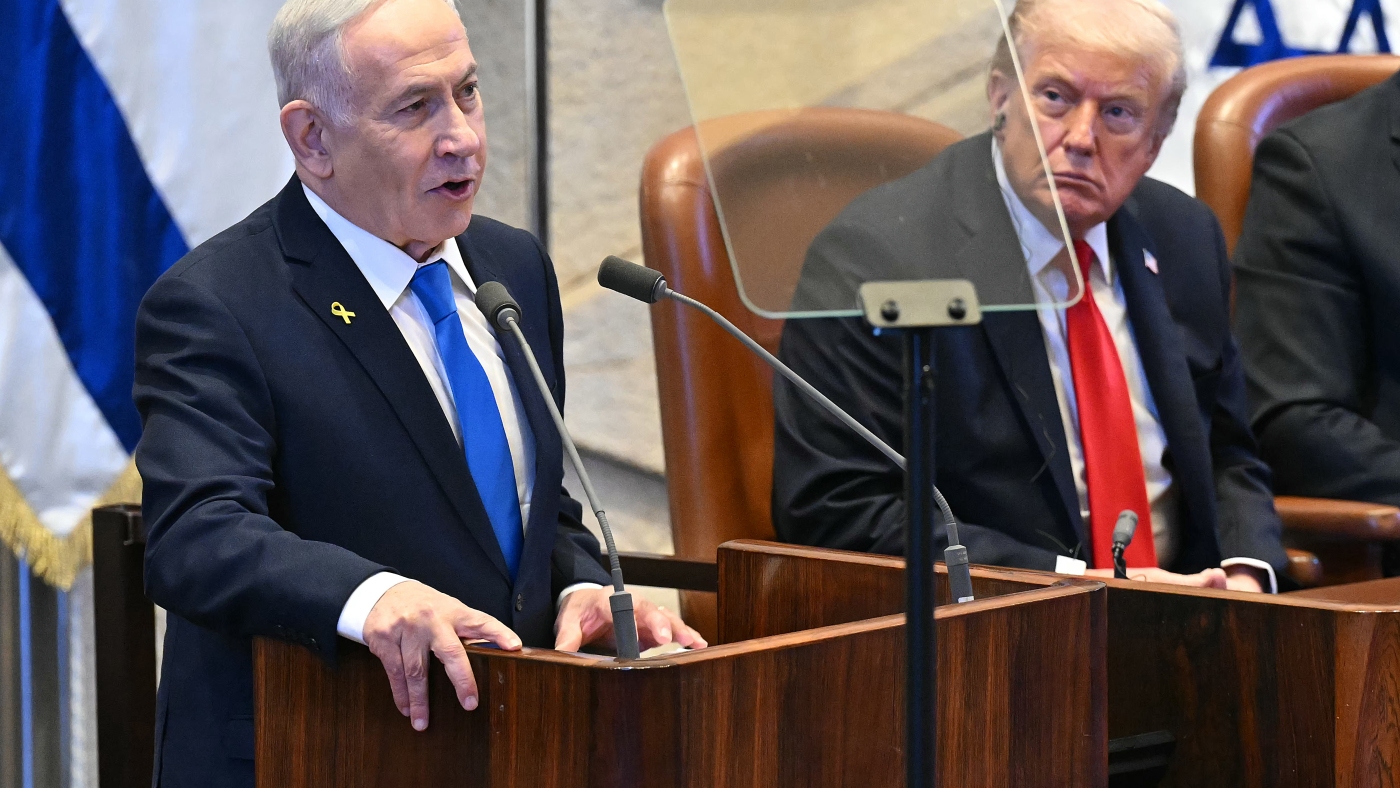World
Israel Celebrates Military Success, Faces Growing Diplomatic Isolation

Prime Minister Benjamin Netanyahu recently addressed Israel’s parliament alongside Donald Trump, declaring significant military victories against adversaries such as Hamas and the Iranian terror axis. He highlighted the elimination of key figures such as Yahya Sinwar, Mohammed Deif, and Ismail Haniyah, as well as leaders from Hezbollah and Syria. Despite these assertions of military success, experts caution that Israel is struggling to translate these victories into lasting political stability and peace.
According to Paul Salem, a senior fellow at the Middle East Institute in Lebanon, “While Netanyahu was winning wars, he was not able to win any of the peace.” He emphasized that Israel’s military achievements have not led to sustainable political solutions, leaving the nation in a precarious position. The ongoing conflict has also attracted severe international condemnation, particularly following the Hamas-led attack on Israel on October 7, 2023, which resulted in the deaths of 1,144 people. In retaliation, Israel’s military operations in Gaza reportedly killed over 68,000 Palestinians, predominantly women and children, according to health officials in Gaza.
The international response has led to charges of genocide against Israel at the International Court of Justice, while Netanyahu faces allegations of war crimes at the International Criminal Court. Both Israel and Netanyahu have firmly rejected these accusations. Chuck Freilich, a former deputy national security advisor in Israel, remarked, “From a purely military perspective, things look much better. From a foreign policy perspective, things could not have deteriorated much more than they have.”
Historically, the 1990s saw significant diplomatic efforts aimed at resolving the Israeli-Palestinian conflict, bolstered by international support. Today, however, criticism of Israel is mounting from various fronts, including widespread outrage in the Arab world and mass protests in European cities and on U.S. college campuses. Freilich expressed concern over the deteriorating relationship between the U.S. and Israel, which he views as a critical existential threat. He noted that Israel’s traditional bipartisan support in the United States is faltering, particularly among Democrats, while some Republican support also appears to be waning.
Trump, a strong supporter of Israel, has begun to set boundaries, urging the nation to maintain a ceasefire and refraining from annexing the West Bank, where numerous Jewish settlers reside on land claimed by Palestinians. Salem pointed out that Trump’s approach indicates a willingness to challenge Israel in ways that previous U.S. presidents have avoided.
The latest Gaza conflict has galvanized younger generations in the Arab world, who previously exhibited less engagement in the Israeli-Palestinian issue. Salem remarked, “This is a war that was carried live on TikTok, and that did not happen in 1948. This has branded an entire generation.”
The recent violence also tested the Abraham Accords, agreements made in 2020 that normalized relations between Israel and several Arab nations. While the accords faced challenges during this conflict, Erel Margalit, an Israeli venture capitalist, noted that business ties with Gulf states have resumed, albeit quietly. He stated, “I think a lot of it is coming back,” suggesting that economic cooperation may continue despite political tensions.
Looking ahead, the path to improving Israel’s international standing appears challenging. Margalit emphasized the need for political leaders from both Israel and Arab nations to break the cycle of conflict. “There needs to be more political leadership because the region could certainly use new initiatives as we’re moving forward from this war,” he stated.
As the situation in Gaza evolves, the potential for a ceasefire and subsequent rebuilding efforts could ease Israel’s international isolation. Yet, recent reports indicate that tensions remain high, with Israel accusing Hamas of continued aggression, prompting Netanyahu to order “forceful strikes” in response to attacks on Israeli forces still in Gaza. The coming weeks will be crucial in determining whether diplomatic efforts can gain traction amidst ongoing violence and international scrutiny.
-

 Sports2 weeks ago
Sports2 weeks agoSteve Kerr Supports Jonathan Kuminga After Ejection in Preseason Game
-

 Politics2 weeks ago
Politics2 weeks agoDallin H. Oaks Assumes Leadership of Latter-day Saints Church
-

 Business2 weeks ago
Business2 weeks agoTyler Technologies Set to Reveal Q3 2025 Earnings on October 22
-

 Entertainment2 weeks ago
Entertainment2 weeks agoZoe Saldana Advocates for James Cameron’s Avatar Documentary
-

 Science2 weeks ago
Science2 weeks agoChicago’s Viral ‘Rat Hole’ Likely Created by Squirrel, Study Reveals
-

 Lifestyle2 weeks ago
Lifestyle2 weeks agoKelsea Ballerini Launches ‘Burn the Baggage’ Candle with Ranger Station
-

 Lifestyle2 weeks ago
Lifestyle2 weeks agoDua Lipa Celebrates Passing GCSE Spanish During World Tour
-

 World2 weeks ago
World2 weeks agoD’Angelo, Iconic R&B Singer, Dies at 51 After Cancer Battle
-

 Business2 weeks ago
Business2 weeks agoMLB Qualifying Offer Jumps to $22.02 Million for 2024
-

 Sports2 weeks ago
Sports2 weeks agoPatriots Dominate Picks as Raiders Fall in Season Opener
-

 Health2 weeks ago
Health2 weeks agoRichard Feldman Urges Ban on Menthol in Cigarettes and Vapes
-

 Health2 weeks ago
Health2 weeks agoCommunity Unites for Seventh Annual Mental Health Awareness Walk









